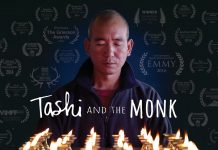Salman Rushdie is a man of many dimensions, and his autobiography “Joseph Anton: A Memoir” is a fascinating insight into his life. Rushdie’s story is an unconventional one, beginning with his childhood in India, where he grew up surrounded by stories and myths that would later inspire his own writing. He went on to study at Cambridge and became a successful writer, earning critical acclaim for his novels such as “Midnight’s Children” and “The Satanic Verses.”
However, it was his fourth novel, “The Satanic Verses,” that would bring him into the public eye in a way that he could never have anticipated. The book was deemed blasphemous by the Ayatollah Khomeini of Iran, who issued a fatwa against Rushdie, effectively sentencing him to death. Rushdie went into hiding, assuming the name “Joseph Anton,” and spent the next nine years of his life on the run, constantly moving from place to place, under the protection of the British government.
“Joseph Anton: A Memoir” is Rushdie’s account of those years, a compelling and often harrowing story of a man forced to live in the shadows, cut off from his family and friends, and constantly looking over his shoulder. Rushdie writes about the fear and isolation he felt, as well as the toll it took on his personal and professional life.
Despite the difficulties he faced, Rushdie refused to be silenced. He continued to write, even in the face of death threats, and eventually emerged from hiding to resume his life as a public figure. In his conversation with Seth Lerer, the dean of Arts and Humanities at UC San Diego, Rushdie talks about the challenges he faced during those years and how he managed to find the strength to keep going.
Rushdie also addresses the recent anti-Islamic video that has sparked riots across the Middle East, offering his thoughts on the controversy and the broader issues it raises. He argues that free speech is a fundamental right, but that it must be exercised responsibly, with an awareness of the potential consequences. He also speaks to the importance of cultural exchange and understanding, pointing out that one of the things that makes his own work so powerful is its ability to bridge different worlds and perspectives.
In the end, “Joseph Anton: A Memoir” is a testament to the power of the written word and the courage it takes to stand up for what you believe in, even in the face of great danger. Rushdie’s story is one of resilience and determination, and his words continue to inspire readers around the world.

































